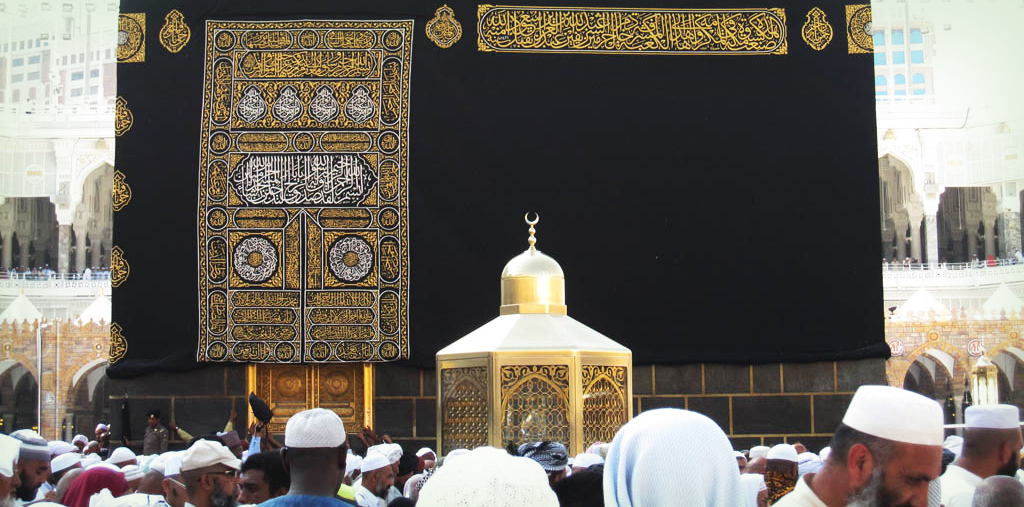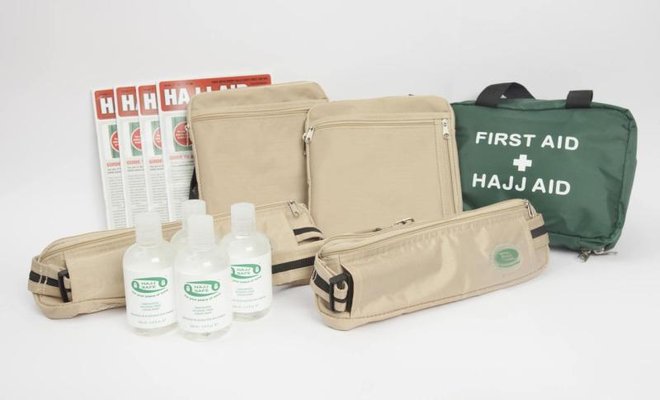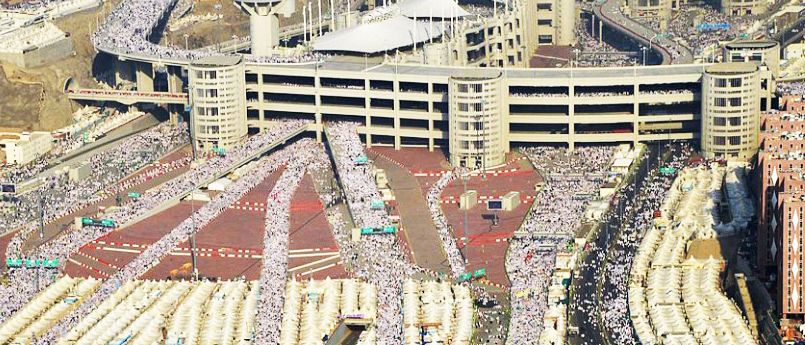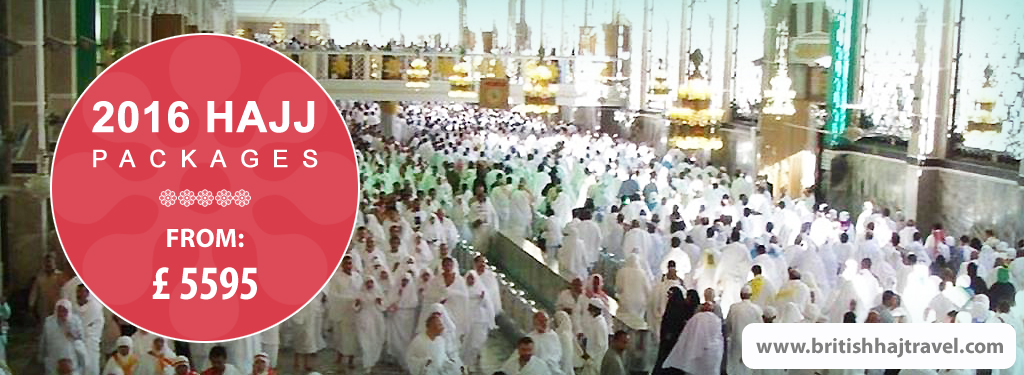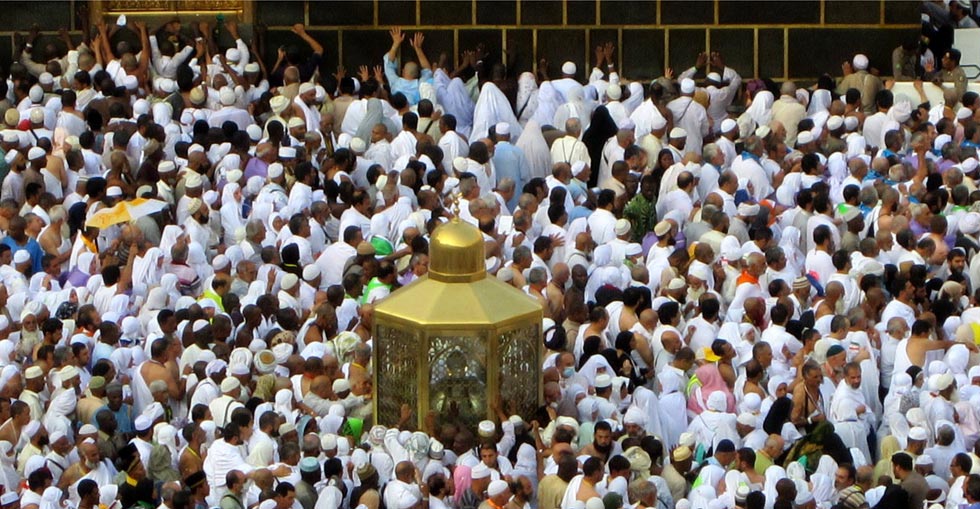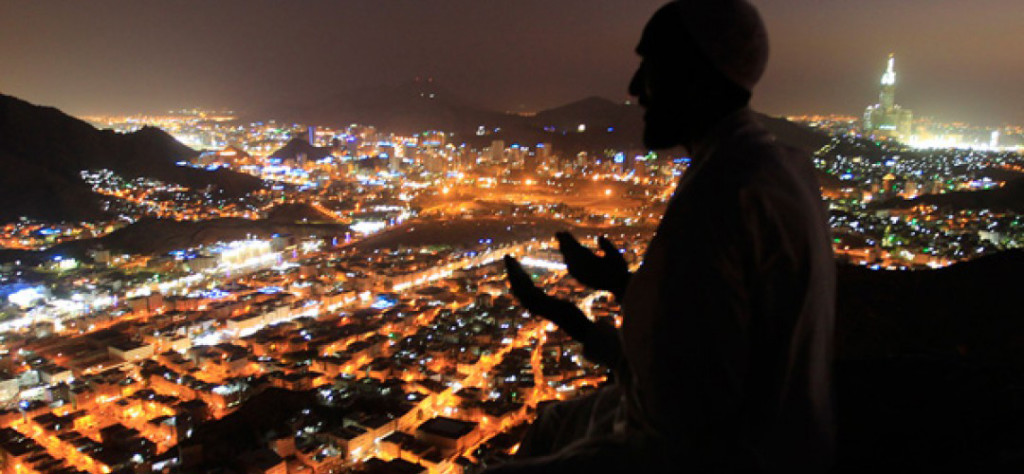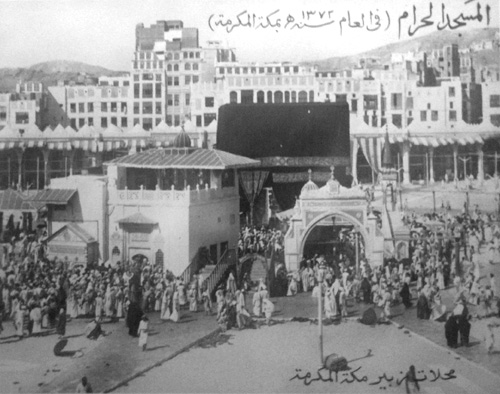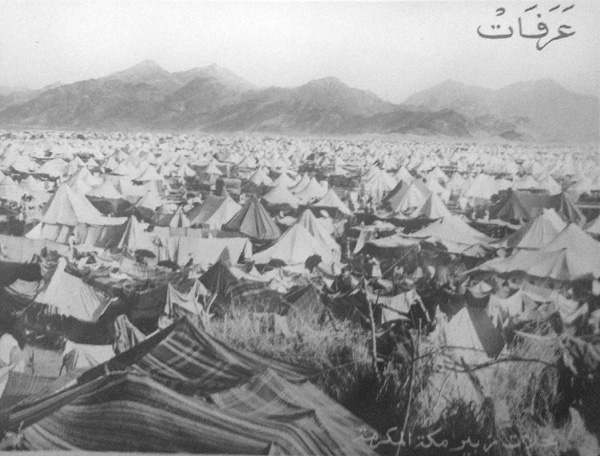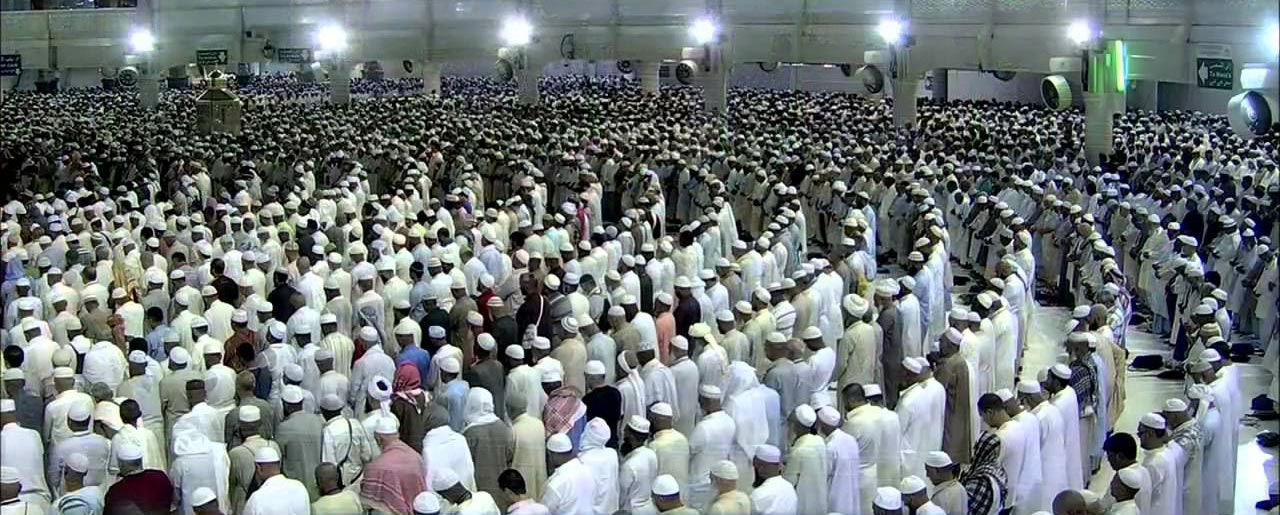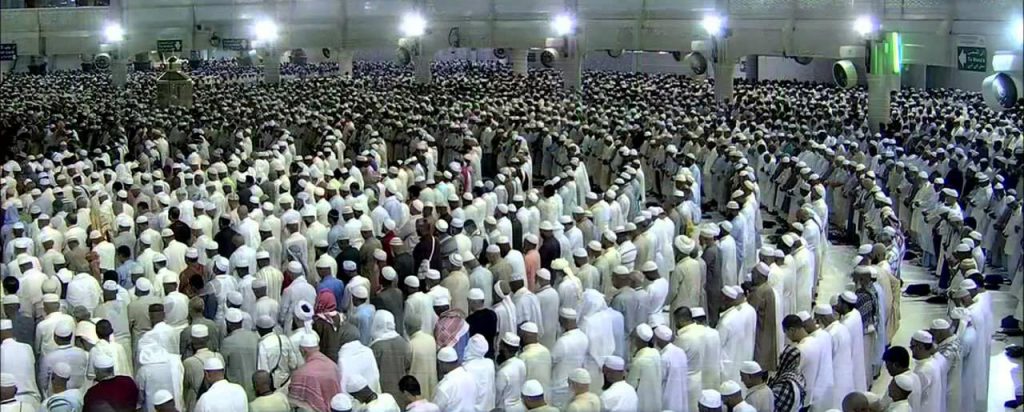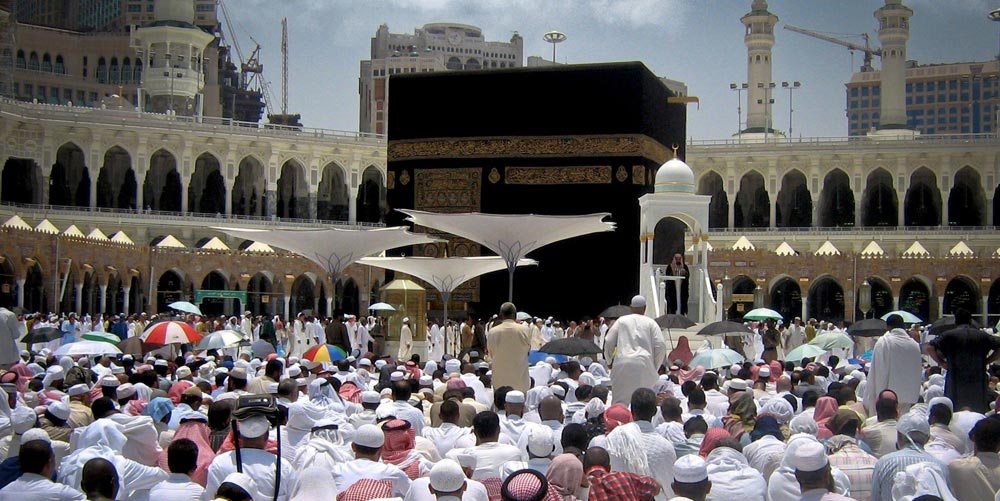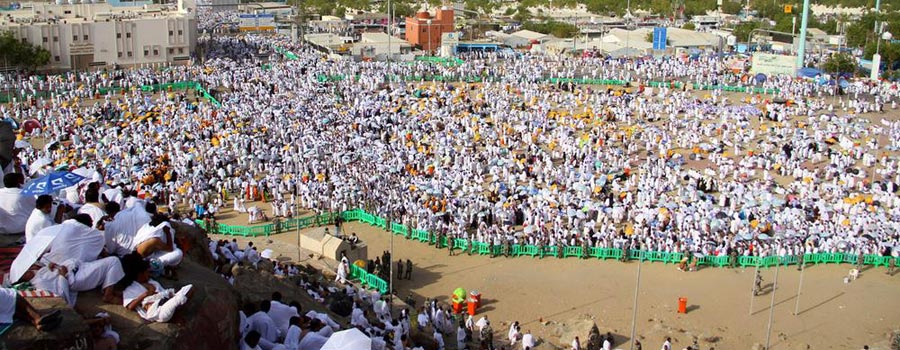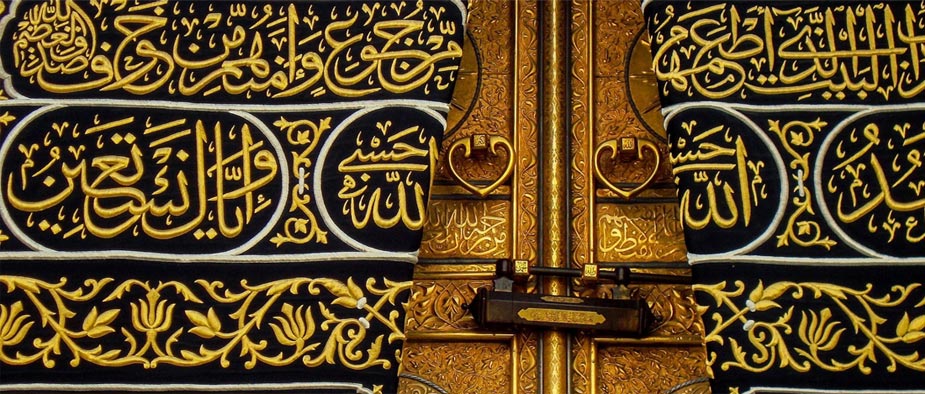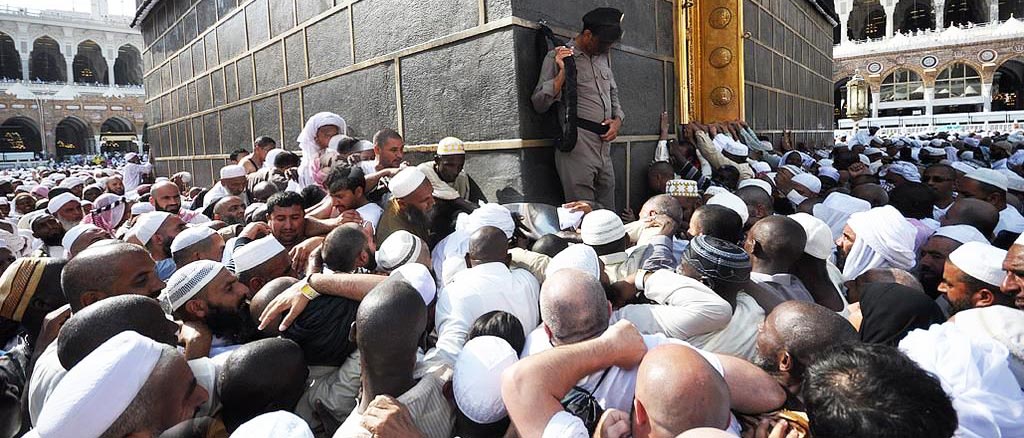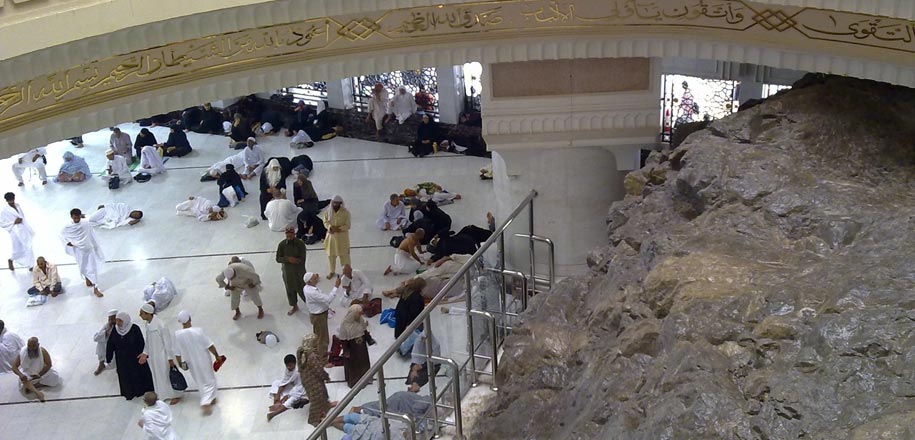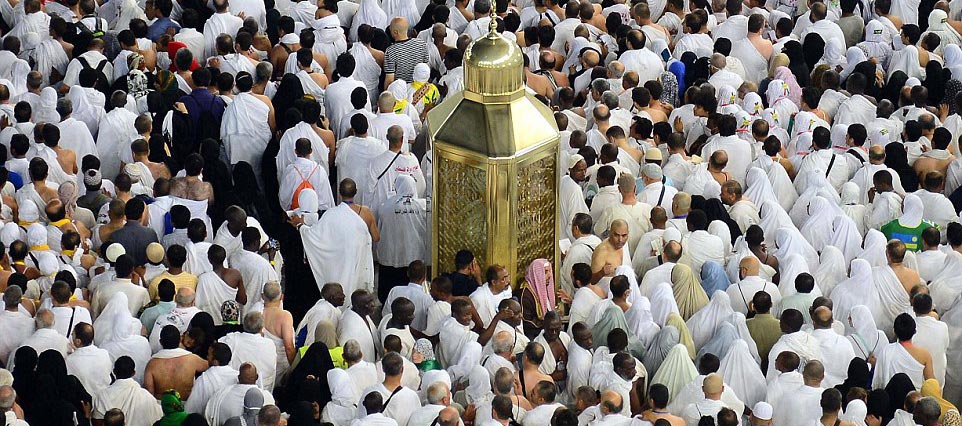General
Hajj is one of the five pillars of Islam. All Muslims who fulfill certain conditions must perform Hajj at least once in their lifetime. What are these conditions? Are there any prerequisites of Hajj? The answers to these and many other similar questions can help you in making decisions, and in planning for Hajj in a better and more efficient fashion.
Who Must Perform Hajj
Every Muslim who fulfills the following conditions must perform Hajj at least once in his lifetime:
He must be of sound mind, and in full control of his mental faculties.
He must be old enough, and mature enough to understand the full import, and significance of what he is setting out to do.
He must be financially sound enough to be able not only to bear all of his expenses for Hajj but also to provide adequately for his dependents during his absence and until his return.
Prerequisites Of Hajj
Since Hajj is an act of worship, it must be performed in peace, and with single-minded devotion. There are a number of simple, yet important, things you can do to get in the right frame of mind for this unique experience. All of these are self-evident and are based on common sense. They are reiterated below for completeness of the discussion and as a reminder:
Your intention must be to perform Hajj solely for the sake of Allah. Considerations of pleasing or impressing others with your show of piety should never be a factor.
All Hajj expenses must be paid out of money obtained through legitimate (Halal) means. Money obtained through illegitimate or doubtful means is not acceptable.
All of your debts and financial obligations must be fully discharged before you start your journey and, where necessary, a written acknowledgment of the transaction obtained for future use.
You must make an honest effort to resolve your outstanding differences with others and seek forgiveness from those you may have hurt in any way in the past. This is based on specific instructions of Rasool Allah (PBUH) and must be followed for the Hajj to be meaningful.
Preparations For Hajj
Since Hajj is a once-in-a-lifetime experience for most people, the importance of early and adequate preparation cannot be over-emphasized. There is a considerable investment of money, time, and physical effort required for the Pilgrimage to be fulfilling and meaningful. Information has to be collected, itineraries must be worked out, and documents have to be ready. The purpose of these preparations is not only to minimize physical discomfort, emotional aggravation, and monetary expenses but also to enable you to perform Hajj in the relative peace of heart and mind. Therefore, it makes sense to be as ready as possible for this momentous journey of self-discovery, self-appraisal, and spiritual enlightenment.
Arrangements must be started early enough so that you are not rushed for time in the few days before your voyage commences. The paperwork, shopping, finalizing your travel and residential arrangements inside Saudi Arabia etc., consume a great deal of time. Three to four months ahead of your actual date of departure is a good estimate for starting your preparations. Your travel agent, or a knowledgeable friend who has performed Hajj recently, can also guide you in your preparations. Be sure to apply a “factor of safety” to their recommendations and allow yourself a somewhat greater period of preparation than they advise!
The following guidelines are intended to get you started in the right direction. Since individual needs and preferences vary widely you will, in all probability, add to the list as you prepare for the journey:
Travel Agent
Choose a travel agent who offers a wide selection of “hajj packages” for Hajj. There are a large number of travel agencies all over the country that offer Hajj services, and not all of their products are of equal quality and value. Choosing the right agent is of crucial importance. Hopefully, a representative of your travel agent will be your constant guide and trouble shooter during Hajj. Invest time and effort in this essential phase of your preparation.
Talk to friends and acquaintances who may have recently used the services of various companies and ask them for recommendations. The quality of service and commitment to the comfort and well-being of the pilgrims vary significantly among travel agents. Whereas a good and responsible agent can “make” your Hajj, a bad one can just as easily “break” it.
Be sure to ask the travel agent specific questions and have him give you specific answers:
What will be the duration of your stay in Mecca and Medina? What dates? Is the program flexible or will it allow no changes once it is made? Is there any additional cost to such changes? If so, what is it?
How far away will you be staying from Haram ash Shareef, both in Mecca and in Medina? If your place of residence is not within easy walking distance (10-15 minutes), what type of transportation to and from Haram ash Shareef will be made available? How often during the day will it be available?
Will a representative of the travel agent who is fully conversant with the rites of Hajj, and Saudi rules and procedures for customs, immigration, and travel be with you at all times? Will he stay in Saudi Arabia for the duration of your visit? You do not want to be left in Saudi Arabia without adequate guidance and assistance. The laws and procedures there can be very difficult, frustrating, and time-consuming.
Will the representative of the agent be conversant with the Arabic language? If not, will an interpreter be provided in Saudi Arabia? Most Saudi authorities do not speak English, and your command of Arabic is likely to be limited.
Will you have the option of traveling within Saudi Arabia, (for example from Mecca to Medina), in a taxi hired by you at your own expense instead of the prepaid bus provided by your Muslim How about a possible return by air from Medina to Jeddah on your way out of the country instead of the usual prepaid bus? Get a good idea of this additional expense.
You may want to use the above options in view of the fact that the bus journeys during Hajj season can be nerve-racking. For example, a bus journey from Mecca to Medina (approximately 400 km or 250 miles) can take as long as twenty to thirty hours, whereas a taxi will cover the same distance in three to four hours. The small additional cost you will incur is well worth the money in terms of time saved and physical discomfort avoided.
If you choose to use any of the alternate travel options (and it is highly recommend that you give them very serious consideration), be sure to redeem your unused bus coupons at Jeddah airport on your way out. Your travel agent should be able to help you in this.
What kind of arrangements will be made for your stay in Mina and Arafat? How about the food arrangements in Mina, Arafat, and Muzdalifah?
Does the price of your package include meals? See if the agents make an effort to vary the menu. You may have to supplement your meals with milk, fruits etc. Food supplied by the agents tends to be monotonous, and the lack of variety is likely to kill your appetite after a couple of days!
Will the agent arrange for a sacrifice on your behalf on the 10th of Zul Hijjah? This is a common service agents often provide for a small fee. They will inform you of the time of the sacrifice so that you may perform other rites accordingly.
Vaccinations
You will need certain vaccinations for the issuance of a Hajj visa. The World Health Organization (WHO) issues annual guidelines and requirements concerning vaccinations for travel to various countries including Saudi Arabia. Your physician will have the necessary information or will be able to access it readily.
Check either with your travel agent or the Saudi Arabian Embassy for additional requirements. The Saudi Government requirements are usually stricter than the WHO recommendations. For instance, whereas the WHO recommended immunization against only meningococcal meningitis for travel to Saudi Arabia in 1997, the Saudi authorities required immunization against cholera also.
Your doctor may recommend additional vaccinations in the light of his knowledge and experience. The writer’s doctor (a specialist in infectious diseases) recommended and administered immunization against typhoid fever, polio, pneumonia, diphtheria/tetanus (D/T) and malaria.
This may sound like “over-kill” and it probably is in most cases. However, it can also save you a lot of worry and misery in those unfortunate instances where extra care is needed. To cite an example : in 1997 there was an outbreak of typhoid in India and some of the pilgrims in the writer’s group, who travelled to India after Hajj, became seriously ill with the illness while there. It is possible that they contracted the disease from carriers among the Indian pilgrims in Saudi Arabia, or they may have contracted the disease in India itself. In any case, earlier vaccination against the disease would have saved them from much suffering and anxiety. Had they contracted typhoid in Saudi Arabia itself from the Indian pilgrims, they would have had serious problems completing their Hajj.
Be sure to obtain an official Vaccination Record Book (the “Yellow Book”) from your County or State Health Department. Have your physician fill it out, sign it, and stamp it. Anything less may be unacceptable to the Saudi visa authorities, and you don’t want your visa application rejected for a small detail like this. Keep the vaccination record book with your other important documents and take it with you to Saudi Arabia. You never know when you may need it.
Documents
Saudi Government regulations require your passport to be valid for at least six months past the date of your departure. If it is not, have its validity extended or get a new passport well ahead of time. It takes several weeks for a passport to be issued or extended under normal circumstances. Your local post office should have the necessary forms and other relevant information.
If you are not a U.S. citizen and hold a “green card”, your passport also needs to be valid for six months past the date of your departure. Your travel agent will be able to advise you of any additional requirements.
You will need a round-trip ticket to Saudi Arabia for a Hajj visa to be issued. Your travel agent will ask you for a specific package of documents to be submitted with your visa application. Normally, the agent will take care of the visa application as a part of his services.
Your travel agent will probably ask you for four to five passport-sized pictures for a visa and other paper work. Have an additional four to five copies of the photos made and take them with you to Saudi Arabia. They may be needed for ID cards issued by your muallim and other Saudi documents and procedures. Having spare pictures on hand will save you the time, aggravation, and expense involved in having them made in a foreign land.
If you were born in the U.S.A., you may be required to have a certificate issued by a competent authority (e.g., the Imam of your local mosque) stating that you are a Muslim. Since non-muslims are not allowed in the holy cities of Mecca and Medina, such a document is of crucial importance, especially if you do not happen to have a typical Muslim name. Your travel agent or the Saudi Embassy can advise you about the details of the said certificate.
Prepare a Last Will and Testament and have it properly notarized. Consult an attorney if it is a complicated will, or if you have concerns about your assets and property in case of something untoward happening to you during Hajj. Leave the original in a safety deposit box accessible to a member of your family. The executor/executrix of your will should also be given a copy, and your attorney should probably retain a copy also. Have him explain to you, and the immediate members of your family affected by the will, the probate laws of your state and advise them as to the best course of action in case of your death abroad.
General
You will be exerting considerable physical effort during Hajj. All Hajj rites (Tawaf, Sai, Rummy etc.) require a great deal of strength and endurance. The constant crush of hundreds of thousands of other pilgrims, each trying to perform the same rites at the same time in limited spaces and very hot weather, compounds the demands on your physical conditioning and mental toughness.
In order to be prepared for the rigors expected of you, you must be in good physical shape. To achieve this, start a program of brisk walking and jogging for twenty to thirty minutes a day about three to four months before your departure. Gradually increase this regimen to an hour every day or every other day.
After a few days of walking/jogging start reciting audibly the Talbiyah and the prayers for Tawaf.This will keep your mind occupied during the monotony of the exercise, and will also help you get in a peaceful frame of mind. Concentrating on the meaning of the prayers will help you get ready for the actual Hajj as well.
Obtain and study books on Hajj and its rites if you wish to know more about its history and traditions. Familiarize yourself with all aspects of the Hajj process. Memorize the prayers you will be reciting and also learn their meaning. It requires very little effort to do so and it is so much more fulfilling and rewarding when you understand what you recite. It serves little purpose to recite prayers mindlessly with no comprehension of the words spoken.
The more you know about Hajj, its obligations, and 	prohibitions, the more comfortable and at peace you will feel during the whole process. You will be confident of what you are doing, and will also be independent of the advice and prompting of your friends or a mutawwif. Your prayers will bear the hallmark of the single-mindedness and devotion born of knowledge and confidence. You will also be able to help and guide your less knowledgeable companions, answer their questions, and allay their fears.
Some people do not take the trouble of learning the 	rites and prayers of Hajj themselves and, consequently, depend on professional mutawwifs for the performance of these rites. You will find such people performing the Tawaf under the leadership of these professionals, trying to keep up with their “leader” in the milling throngs of pilgrims around the Kabah, and at the same time, trying to repeat the prayers intoned by their mutawwif! With a little bit of effort, you can avoid the problems and frustrations of trying to follow some one else closely enough in a vast, moving crowd to listen to and parrot his intonations.
A female pilgrim must travel in the company of her husband or a mahram i.e., a member of her immediate family with whom her marriage is expressly prohibited by the shariah e.g., father, brother, son, uncle, etc. A female pilgrim, who is forty five years of age or older, may be allowed to travel with a group of pilgrims without a mahram if a family in the group sponsors her. Ask your agent for details.
Things To Take With You
The following is a fairly comprehensive list of things you will need to take with you to make your journey, and subsequent stay in Saudi Arabia safe, convenient, and relatively care-free. Since personal needs and preferences vary, you may want to make changes in this list to suit your own requirements.
Ihram
The Ihram consists of two pieces of white, unsewn and 	plain cloth, either 100% cotton or light terry-cloth. These are cool to wear and also provide for better absorption of the heavy perspiration you will inevitably experience during Hajj. The sizes of the two pieces are as follows:
Bottom Part : 45″ (1 1/4 yd) x 120″ (3 1/3 yd)
Top Part : 45″ (1 1/4 yd) x 72″ (2 yd)
Tear off two, two to three inch wide strips of a sufficient length from the same material. Use one as a belt to secure the bottom portion of the Ihram. Keep the other as a spare. An ordinary belt or fanny belt may also be used for the same purpose, but a strip of Ihram cloth is a lot more practical, and unobtrusive. It keeps the Ihram firmly in place and, unlike a fanny belt or pouch, does not have to be inspected by the police at the entrance to the Haram ash Shareef.
Tear off an eight to ten inch wide strip of sufficient length from the same material. Use it to secure money, credit cards, airline ticket, etc. around your midriff under the Ihram. Use a plastic sandwich bag inside this make-shift pouch to keep these things dry, and secure. This is as pilfer-proof as possible and,unlike a belt or fanny pouch, does not attract the unwanted attention of pickpockets and thieves. You may still use a fanny pouch to carry other things such as medication, pen, a handkerchief, and a small amount of money for daily use. Your fanny pouch will be inspected by the police at the entrance to Haram ash Shareef in Mecca and Medina. Be patient and understanding as the police are only doing their job.
Medication
Gastrointestinal and respiratory infections are very 	common during Hajj . People from all over the world bring with them all kinds of infections, and the unavoidable closeness of the hundreds of thousands of pilgrims facilitates easy spread of these illnesses. Fatigue, and lack of sleep from the physically demanding regimen of Hajj rites as well as the over-enthusiastic exertions in prayers and devotions, lower one’s immunity and resistance, thereby making one more vulnerable to disease. However, you can take elementary precautions to minimize your chances of becoming ill, and also to ensure that you will get back on your feet faster should you get sick. Getting and staying in good physical shape by regular exercise prior to your departure is a good first step. You can also carry certain medicines with you for use later.
Ask your doctor to prescribe a broad-spectrum antibiotic to be taken prophylactically (i.e., as a preventive measure) throughout your stay in Saudi Arabia. The writer’s doctor prescribed 250 mg of the antibiotic CIPRO to be taken daily. He found it to be very helpful and effective as he was about the only person in his group of approximately seventy five people who remained healthy and free of all infections during his stay. CIPRO is easily available in Saudi Arabia. Some people were prescribed AMOXICILLIN by Saudi doctors and pharmacists with good results. Most medicines are available over the counter in Saudi Arabia, and even pharmacists readily prescribe medication. However it is preferable to consult your doctor in the U.S.A. for your needs for obvious reasons.
Carry a reasonable supply of over-the-counter drugs such as :
ASPIRIN, TYLENOL, ADVIL or ALEVE (for pain)
TYLENOL PM (as a sleep-aid)
BENGAY, ASPERCREME (for muscular pain)
PEPTOBISMOL, IMMODIUM (for diarrhea)
EMETROL (for nausea)
COUGH DROPS, MULTI-VITAMINS, BAND-AIDS, ANTI-BACTERIAL CREAM (for cuts)
Waist Pouch (Fanny Pouch)
Keep valuables (documents, money, travellers’ checks, keys, credit cards, etc.) in the fanny pouch around your waist at all times. Do not ever leave your home without it. Be especially careful and wary in crowded places. Unfortunately, there are thieves and pickpockets even inside Haram ash Shareef! Hold on to the pouch with your hand in crowds e.g., while doing Tawaf or when visiting Al Masjid un Nabawi in Medina. Buy a good quality fanny belt or pouch. It is a small but a very good investment.
Suitcase
Hard-cased, high quality luggage with a built-in locking system is highly recommended. Do not use a soft, vinyl suitcase with outside hasps for locks. Both the suitcase as well as the locks can be easily cut and the contents stolen. Many people have the mistaken notion that every one in and around the holy cities of Mecca and Medina and Al Haram ash Shareef is a God fearing, devoted Muslim. Therefore, they feel immune from criminal activity. Unfortunately, that is just not true. Inspite of the severe punishments awarded to convicted criminals by Saudi authorities, crime does exist. Pickpockets and crooks find it easy to prey on unsuspecting pilgrims whose guard is down because of their preoccupation with Hajj activities.
Always keep your suitcase locked and do not ever leave money, important papers or other valuables in it.Your residential room will be periodically cleaned by the cleaning staff, and the best way to keep every one honest is not to offer any temptation. Take two sets of keys for your suitcase. Keep one set in the fanny pouch, and the other in a separate, and safe location.
Money
Take a sufficient amount of currency to cover your projected expenses. It is difficult to recommend an amount since individual needs, travel and living arrangements, shopping plans etc. vary widely. Only you can decide on the amount to carry. In any event,do not advertise to others either the amount of money you possess or its place of safekeeping. You can never be too careful.The following are some useful guidelines in this area:
Have most of your money in the form of travellers’ checks. They are safe to carry, can be cashed almost anywhere, and are easily replaced in case of theft or loss. Since your passport will have been taken from you for the duration of your stay by the Saudi authorities in Jeddah, the ID card issued by your muallim will most probably be used for check cashing purposes. The importance of this card cannot be over-emphasized. Take good care of it!
Besides the Saudi banks, the travellers’ checks can also be cashed at the numerous “sarrafs” (money changers) located in the market in Mecca and Medina.
Carry a small amount of Saudi riyals with you. A minimum of one thousand riyals (1 Dollar = 3.75 Riyals) is recommended. You can purchase them at almost all currency exchanges located in major American airports. This Saudi currency will help you take care of your immediate expenses upon your arrival until you become familiar with the local system. You will also save time and aggravation associated with making trips to the banks to cash your checks. All banks tend to be crowded during the Hajj season and may also be closed at certain times of the day and certain days of the week.
Take only one credit card with you to minimize problems in case of its loss. Make sure that you can use it to charge telephone calls also. Do not forget to carry the information required to contact the credit card issuing institution in case of its theft or misplacement.
Take some U.S. currency also with you. You can exchange it for Saudi currency everywhere in emergencies, and may need it immediately upon your return to the U.S.A.
Clothing
Saudi Arabia is a very hot part of the world most of the year. The presence of two to three million pilgrims during Hajj in rather congested spaces with the inevitable pushing and shoving adds to the discomfort. The Hajj rites, ziyarat (i.e., visiting places of religious or historical interest), shopping, etc. require considerable walking and physical exertion. Consequently, light and airy clothes for street wear are the best.
Take enough changes of clothes to make your stay comfortable, but be careful not to overburden yourself with unnecessary clothes. In the hot Saudi Arabian weather, one set of clothes lasts only a day. Professional laundry facilities are available in Saudi Arabia, though coin-operated laundries are a rarity. Getting your clothes cleaned professionally is quite expensive, particularly as the prices tend to sky-rocket during the Hajj season.
Some do-it-yourself light laundry may be necessary and is, indeed, highly recommended. It is a good idea to pack some laundry detergent, and wash your Ihram and other light items yourself. You will have a considerable amount of spare time before and after Hajj. Use it for “housekeeping”.
For street wear, Indo-Pak shalwar-qamees, and kurta-pajama as well as the Saudi tobes (a one-piece head-to-toe garment) are ideal and are recommended. Tobes are easily available everywhere in Saudi Arabia.
Depending on the time of the year, you may want to pack a light sweater for early morning wear in Medina, which tends to be cool at that time of day in November and December.
Foods/Snacks/Water
There is no real need for you to carry items of food with you. Everything is readily available in Saudi Arabia at a reasonable cost. Saudi authorities do not allow perishable food items to be brought into the country in significant quantities anyway. Packaged and canned products in limited quantities, however, may be brought in by tourists and pilgrims. For emergencies and during periods of long waiting (e.g., at Jeddah airport) carry-on food may come in useful and handy. All kinds of food are available at Jeddah airport also. Some people may, however, prefer to use their own food immediately upon arrival in a foreign land. Some general guidelines are given below:
A couple of packs of cookies and crackers are helpful and provide a good snack. Remove them from their boxes; they occupy much less space as individual rolls. Granola bars, packaged dates, fig newtons and similar items are recommended also.
All varieties of fruits are easily obtainable everywhere in Saudi Arabia and provide much needed flavor and nutrition. Peelable fruits (bananas, oranges etc.) are recommended to minimize exposure to infection from insanitary handling. Wash all fruits carefully before use, and avoid fruits and food exposed to the elements.
Soft drinks of all kinds are obtainable in Saudi Arabia at all major and minor shopping establishments, and are entirely safe to drink. Bottled water is cheap, and should be the only water you drink. Tap water or water from any other source (except, of course, the Zam-Zam water) should not be used for drinking purposes.
Milk, yogurt, buttermilk, ice cream, and other dairy products are widely available, and should be liberally used to supplement your diet.
Take two 18-oz cans of powdered POWERADE or GATORADE with you. Mixed directly with a bottle of cold water, they make for a nutritious and delicious drink and also serve to replenish body salts and chemicals lost through the inevitable heavy perspiration.
Miscellaneous
The following is a list of items of daily use you should carry with you. They will make your life easier, and your stay in Saudi Arabia more comfortable.
multi-blade pocket knife, can opener, nail clipper, small scissors, tooth brush, tooth paste, disposable razors, shaving cream, small mirror, comb, toilet paper (2 rolls), napkins, soap (2 cakes), plastic soap dish, small shampoo bottle, deodorant, chapstick, small vaseline, tooth picks, pocket Quran, tasbeeh, pen, pencil, notebook, slippers (flip-flops, thongs, chappals), sneakers, folding umbrella, sunglasses (or clip-on sunshades), small flash light with extra batteries, travel alarm clock, elastic eye-glass holder, baseball cap, 10 zippered sandwich bags, 4 garbage bags, plastic spoons, laundry detergent, 6 plastic grocery bags, towels (2 large, 2 small), musalla (i.e. prayer rug), one heavy sheet, inflatable pillow.
British haj travel announced 3,4 and 5 star hajj Package visit our website & select your golden hajj packages
Umrah Packages | Hajj Packages | Ramadan Umrah Packages | December Umrah Packages
Source: islamicity.org
